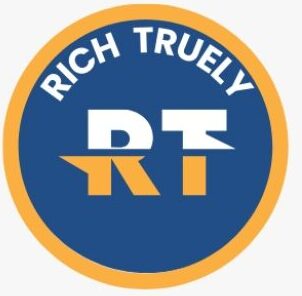Buying your first home is a big deal but also one of the biggest financial decisions you’ll make. The mortgage process is complex and has many steps and terms. This first time homebuyer’s guide will break down each part of the process and give you the details and practical tips to help you feel confident in your journey to home ownership.
Whether you’re just thinking about buying or ready to make an offer, understanding the mortgage process is key to making smart decisions.
Mortgages 101
A mortgage is more than a loan; it’s a long term commitment that can affect your financial future. Here we break down the key parts of a mortgage so you can understand what you’re getting into.
What is a Mortgage?
A mortgage is a type of loan used to buy real estate. You borrow money from a lender and agree to pay it back, with interest, over a certain period of time—usually 15 to 30 years. The home you buy is collateral, meaning the lender can take the property if you don’t make payments, a process called foreclosure.
Key Terms
Here are the terms you need to know as you start your mortgage journey:
- Principal: The amount you borrow from the lender.
- Interest Rate: The cost of borrowing the principal, expressed as a percentage. Fixed or adjustable.
- Term: The length of time you agree to repay the loan. 15 or 30 years is standard.
- Down Payment: The upfront amount you pay to buy the home. Usually expressed as a percentage of the home’s price.
- Amortization: The process of your loan balance decreasing over time as you make payments.
Interest Rates in Mortgages
Interest rates play a big role in your monthly payment and overall cost of the mortgage. A lower interest rate means lower monthly payments and less interest paid over the life of the loan.
- Fixed-Rate Mortgages: The interest rate stays the same throughout the term, for stability and predictability.
- Adjustable-Rate Mortgages (ARMs): The interest rate can change periodically, usually tied to an index, which means your payments could go up or down over time.
Now that you understand the terms, let’s get started.
Getting Ready to Buy
Before you even start looking at homes, you need to be financially ready for a mortgage. This first time homebuyer’s guide will walk you through the steps to take before you apply for a mortgage.
Know Your Finances
Knowing your financial situation first time homebuyer’s guide is very important. This means understanding your income, debts and savings to see how much home you can afford.
- Your Income: Gross income (before taxes) and net income (after taxes). This article first time homebuyer’s guide will give you an idea of how much you can afford to put towards a mortgage payment.
- Debt-to-Income Ratio (DTI): This is monthly debt payments to gross monthly income. Lenders use this to determine your ability to make monthly mortgage payments. Aim for DTI below 36%.
- Credit Score: Your credit score affects your mortgage eligibility and interest rates. Higher scores get better terms. Aim for 700+
Low Interest Mortgage in 2024, Strategies to Get Lowest Mortgage Rate
Saving for a Down Payment
A down payment is an upfront payment when you buy a home. The size of your down payment will affect your mortgage terms and monthly payments.
- How Much Should You Save?: 20% is standard but many first time homebuyers put down less. A bigger down payment will lower your monthly payments and reduce the interest you pay over the life of the loan.
- Saving Strategies: Make a separate savings plan, automate transfers to your account and cut back on discretionary spending.
Mortgage Options
Not all mortgages are created equal. Knowing the different types of mortgages will help you choose the one that’s right for you.
- Fixed-Rate Mortgages: Stability with a fixed interest rate and monthly payment. Good for long term buyers. Adjustable-rate mortgages (ARMs) start with a lower interest rate that can change over time. Good for those who plan to sell or refinance before the rate adjusts.
- FHA Loans: Government-backed loans for lower income or first time buyers. Lower down payments and more flexible credit requirements.
- VA Loans: For veterans and active duty military. Competitive rates and no down payment.
- USDA Loans: For rural property buyers. No down payment for those who qualify. Jumbo Loans for homes above conventional loan limits. Higher credit score and bigger down payment required.
The Mortgage Application Process
The mortgage application process can be detailed and sometimes lengthy. Being prepared can help you navigate it more smoothly.
Get Pre-Approved
Getting pre-approved gives you clarity on your finances and shows sellers you’re a serious buyer.
- Pre-Quall vs. Pre-Approved: Pre-quall is an estimate based on self reported financial info. Pre-approval is a more in-depth process that includes a credit check and verification of your docs.
- Benefits of Pre-Approval: Gives you a real budget and makes your offer more attractive to sellers.
Get Your Docs
Lenders will need various documents to process your mortgage application. Having these ready will speed up the process.
- Income Verification: Pay stubs, tax returns, W-2s or 1099s.
- Asset Verification: Bank statements, retirement account statements, any other asset docs.
- Debt Information: Credit card statements, auto loan statements, student loan statements, other debt obligations.
Choose a Lender
Not all lenders are created equal. Shop around to find the best terms and rates.
- Types of Lenders: Banks, credit unions, mortgage brokers, online lenders offer mortgages. Compare offers from several sources.
- Rate Lock: Consider locking in your rate to protect yourself from rate increases while processing your loan.
Don’t Forget the Extras
Beyond the down payment and monthly mortgage payments there are other costs to consider when buying a home.
- Closing Costs: 2-5% of the loan amount and includes fees for loan origination, appraisal, title insurance, etc.
- Property Taxes: Based on the value of your home, these are due annually or semi-annually.
- Homeowner’s Insurance: Required by lenders, this insures your home against damage and theft.
- Private Mortgage Insurance (PMI): If your down payment is less than 20% you may need to pay PMI which insures the lender if you default on the loan.
How to Get the Best Mortgage Rate: 20 Tips and Tricks
The Final Stretch
Once your application is approved you’re in the home stretch to homeownership. The closing process involves several steps.
Review the Closing Disclosure
Your lender will provide the Closing Disclosure three days before closing. This document outlines the final terms of your loan.
- What to Review: Loan amount, interest rate, monthly payment. Closing costs. Are there any surprise fees?
- Common Mistakes: Typo’s, incorrect interest rates, fees not disclosed earlier. Address any issues with your lender ASAP.
Walk through
Before closing do a final walk through of the property.
- Checklist: Repairs done? Appliances working? Property clean and free of previous owner’s stuff?.
Signing the Paperwork
Closing day is when you sign all the papers, finalize your loan and transfer ownership of your property to you.
- What You’ll Sign: Promissory Note (your promise to pay back the loan), Deed of Trust (which secures the mortgage) and various other legal disclosures.
- Bring to Closing: Government issued ID, proof of homeowner’s insurance and a cashier’s check or proof of wire transfer for your closing costs and down payment.
Post-Closing
Even after closing there are some important tasks to complete to make the transition to home ownership smooth.
Making Your First Payment
Your first mortgage payment is usually due one month after closing. Setting up automatic payments will help you avoid late fees and protect your credit score.
- Grace Period: Most lenders offer a 15 day grace period for mortgage payments. But paying on time is best to avoid any credit impact.
Escrow Accounts
If your lender sets up an escrow account, a portion of your monthly mortgage payment will go towards property taxes and homeowner’s insurance.
- What is Escrow: An escrow account will ensure your taxes and insurance are paid on time so you don’t get penalized or lose coverage.
Home Maintenance and Upkeep
Owning a home comes with ongoing responsibilities, maintenance and repairs.
- Routine Maintenance: Inspect your HVAC system, plumbing and roof regularly to prevent small issues from becoming big problems. Keep up with yard work and exterior maintenance to protect your investment.
First Time Homebuyer Benefits
Being a first time homebuyer’s guide has its own set of benefits. Knowing these benefits will help you maximize the opportunities.
Special Loan Programs
First time home buyers may qualify for special loan programs that offer lower down payments, lower interest rates or assistance with closing costs.
- FHA Loans: These government backed loans are designed for first time buyers with lower down payments and more lenient credit requirements.
- State and Local Programs: Many states and local governments offer first time buyers grants, tax credits or low interest loans. Check with your local housing authority for more information.
Tax Benefits
As a homeowner you may be eligible for tax deductions that reduce your taxable income.
- Mortgage Interest Deduction: You can deduct the interest you pay on your mortgage from your taxable income which can be a big tax savings especially in the early years of your mortgage.
- Property Tax Deduction: You can also deduct the property taxes you pay on your home from your taxable income.
Equity
One of the biggest benefits of home ownership is Equity which is the difference between your home’s value and your mortgage debt.
- How Equity Grows: As you pay your mortgage and your home appreciates your equity grows. You can use this as a financial safety net and tap into it through home equity loans or lines of credit if needed.
First Time Home buyer Challenges
Being a first time homebuyer has many perks but challenges can be tough.
Financial Challenges
Buying a home can cost a lot and many first time buyers need to think about how much they will need.
- Saving for a Down Payment: Saving for a down payment can be hard especially in areas where prices are high.
- Unexpected Expenses: In addition to the purchase price, closing costs, moving costs and ongoing maintenance costs to consider.
Mortgage Process
The mortgage process can be confusing especially for those who are not familiar with the terms and requirements.
- Loan Terms: Amortization, PMI and escrow can only be understood with prior experience.
- Paperwork and Documentation: The paperwork involved in applying for a mortgage can be overwhelming. Being organized and prepared can help ease the burden.
Market Conditions
Real estate markets can be competitive for first time buyers.
- Bidding Wars: In hot markets, first time buyers will compete with other buyers which can drive up prices and make it harder to get a home.
- Market Fluctuations: Changes in the housing market can affect home values, interest rates and loan availability.
Mortgage Financials
Understanding the financials of mortgages is key for first time homebuyer’s guide. This section will give you an insight on how mortgages work and how it will affect your finances.
How Interest Rates Affect Your Mortgage
Interest rates will determine your monthly mortgage payment and total cost of the loan.
- Fixed vs Adjustable Rates: A fixed rate mortgage provides stability with predictable payments while an adjustable rate mortgage may offer lower initial rates but comes with the risk of higher costs later on.
- Rate Changes: Even a small change in interest rates can make a big impact on your monthly payment and total interest paid over the life of the loan.
Amortization
Amortization is how your loan balance decreases over time through regular payments.
- Monthly Payments: Each payment is broken down to principal and interest. In the early years of your mortgage, more of your payment goes to interest, while in later years, more goes to paying down the principal.
- Amortization Schedule: Check your amortization schedule to see how your payments are applied and how fast your loan balance will decrease.
Private Mortgage Insurance (PMI)
If you put down less than 20% you’ll need to pay PMI which protects the lender if you default on the loan.
- Cost of PMI: PMI is added to your monthly mortgage payment. Cost varies based on your down payment and credit score.
- How to get rid of PMI: You can get rid of PMI by putting down 20% or using certain loan programs.
How to Refinance Your Mortgage: A Step-by-Step Guide
Common Mistakes
The mortgage process is complicated and first time homebuyers make mistakes that cost them time and money. Here’s how to avoid the most common ones.
Overbidding
One of the biggest mistakes first time homebuyers make is buying more house than they can afford.
- Set a Real Budget: Use the 28/36 rule as a guide, which is 28% of your gross income on housing and 36% on total debt.
Not Getting a Home Inspection
Some buyers skip the home inspection in a hurry to close. This can be a big mistake if the property has hidden problems.
- Always Get an Inspection: Even in a hot market get an inspection to find potential issues that could cost you big time repairs.
Not Shopping Around for a Mortgage
Rates and terms can vary greatly between lenders. You must shop around to avoid higher costs over the life of the loan.
- Shop Around: Get quotes from at least three lenders to get the best deal.
Not Factoring in Extras
There are many costs beyond the purchase price of the home including closing costs, property taxes and insurance.
- Budget for All: Make sure you budget for these expenses so you don’t get any surprises after you close on the home.
Conclusion
Being a first time homebuyer’s guide can be overwhelming but with the right information and preparation you can make informed decisions that lead to successful homeownership. By knowing your financial situation, researching your mortgage options, getting pre-approved and factoring in extras you’ll be better equipped to navigate the mortgage process.
Use the benefits, know the challenges and don’t make the mistakes. Homeownership is a big deal, be prepared and it will be good for your future.




